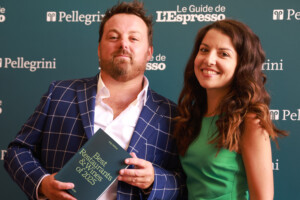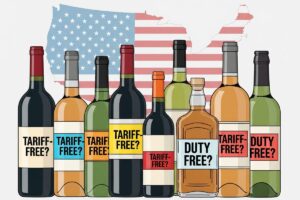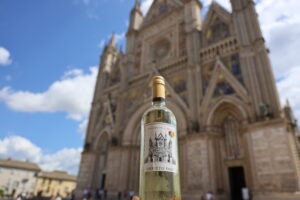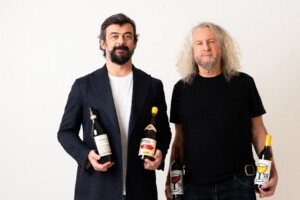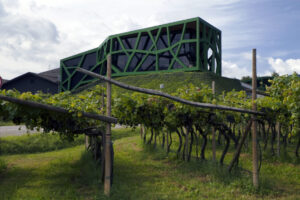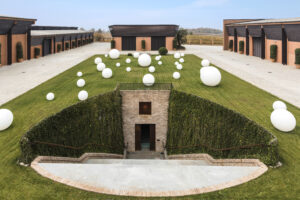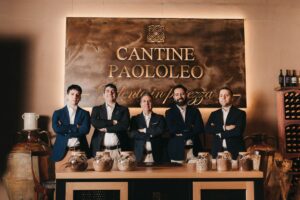“Vision 2030” is a project that has been extended to include contributions from professionals in the sector who have adhered to the creation of the “Manifesto of Italian Wine” with a time horizon that is finally long, 10 years, until 2030. It represents the first project where managers, entrepreneurs and qualified wine professionals, who live the market and the operations of their companies on a daily basis, bearers of operational and concrete instances on the real needs of companies and in line with the dynamics of the markets, discuss the most important strategic themes of the sector openly and with a “spirit of service”. And that in a year of forcedly “virtual” meetings between competitors who have decided to share their skills and experience with the utmost transparency and work as a system, has given rise to a “think tank” of 24 of them to develop a joint reflection on the state of the art of the sector and possible initiatives to capitalise on the potential of our wine industry in the best possible way”. This was said by Ettore Nicoletto, chairman and CEO of Bertani Domains, taking stock at the “Wine2Wine Business Forum” at VeronaFiere in Verona, of “Vision 2030”, “born from an idea of three friends, myself, Elena Lenardon and Fabio Piccoli”, and which projects Italian wine into the future. “But I would also like to say that”, added Nicoletto, “Vision 2030 is not intended to replace the institutions, trade associations and public and private entities operating in our sector, but is intended to be a stimulus for the supply chain to reflect on the requests and recommendations contained in a “Positioning paper”, a document that we will make available by the end of 2021”.
“Vision 2030” now has 6 round tables to focus on the main scenarios in the sector: the supply-demand balance and management of the country’s production assets; the identity and positioning of Italian wine not only on international markets but also in Italy; communication; wine tourism; the strategic development of the structure of the wine industry, with the theme, for example, of generational changeovers; and the training of human resources and development of their skills. These were joined by two other areas, which emerged transversally at the various tables, dedicated to sustainability and digitalization, with the support of Nomisma Wine Monitor and Denis Pantini.
In the light of all this, some Consorzia are now demonstrating in practice how it is possible to move in an inter-branch logic, applying measures such as storage and the blocking of planting, which seem to have a real influence on the supply-demand balance, guaranteeing competitiveness for the Denominations. Supply management allows the consumer to have many more guarantees and companies to deal with entrepreneurial “assaults”, and the Consortia have a very important role to play”, explained Marco Nannetti, President of Terre Cevico and Cantine Giacomo Montresor in Verona, “but instruments such as the block on Denominations must be accompanied by an EU decision confirming at least until 2024 the stop on authorizations for targeted management, currently at 1%, to increase potential on the basis of market fluctuations. The Consortia have the possibility of increasing the activity of the Sian platform to view and govern the actual “stock pile” of DOC and non-DOC production, which other countries do not have. They also have a specific CMO for the sector that must last over time to allow them to organize the restructuring of plants in line with market and consumption trends, and to support targeted promotional activities. Governing an offer of over 400 denominations, as we have in Italy, is extremely complex and needs simplification, as does telling the territories with “umbrella” denominations that can specify the individual areas, MGAs or sub-areas, in order to enhance their value. We have also addressed the issue of yields per hectare, in the logic that our system must grow in value on foreign markets and look less at volumes, which do not directly concern the Consortia that deal with the Denominations that underpin the Regulations, but generic and so-called varietal wines for which the reduction of production potential is fine, but with specific territorial derogations on those that do not create stocks and that must be identified, considering that we are in Italy at 50 tonnes per hectare as maximum potential”.
The fragmentation of the Italian production fabric and of the Denominations does not make it easy to valorize our vast and heterogeneous winemaking identity, if not with an effective synthesis of the values of Made in Italy and its creators, from small producers to cooperatives, from independent winemakers to large companies. “Compared to other countries, our fragmented production is a strong point”, said Matilde Poggi, producer with Le Fraghe and president of Vignaioli Indipendenti Europei (Cevi). “There are producing countries where small companies are unable to establish themselves, while here they are a real force alongside the large groups. With regard to the splitting up of designations of origin, among which there are some very small ones, the advice is to arrive at a union, while maintaining their most important characteristic, which is their link with the territory. Some Denominations should insist more on their history, rather than chasing the market by changing their brand. It would help enormously to have an “umbrella” brand that reminds us that all these Denominations are Italian, because it would be much easier to promote a bottle of wine with the Italy brand abroad. It would also be decisive in the fight against Italian sounding”.
Among the issues addressed in “Vision 2030” is that of internal company resources, and those coming from the government and the EU to be invested in quality, with coordination of promotional activities for Italian wine at international level. “We should have the courage not to spend money on seven Chambers of Commerce that go to Beijing a week apart to promote micro-areas, reducing our selfishness and letting the big companies go ahead and open up markets where the small ones are fundamental to accrediting the quality and craftsmanship of the territories”, explained Marcello Lunelli, vice-president of Ferrari and the Lunelli Group. “Wine is a powerful communicator, and here too we should make a better effort to create the right synergies with other sectors, such as fashion, design and the artistic heritage. This work must start with us producers, who must rethink ourselves in a less dispersive and incisive way on the markets, having understood, in the pandemic, that Made in Italy is an extraordinary value and that everyone in the world wants to come to Italy, and let's think how many by 2030. But we cannot do it alone, the institutions must believe in us and they will if we are all together. In the past there was a proposal to self-tax Italian wine in order to go abroad with made-in-Italy communication, perhaps it could be revived in a modern way”.
Crucial is the research and training of human resources, one of the greatest difficulties faced by those in charge of companies today. “From the USA to France and Australia, in the main wine-producing countries, there is a lot of attention paid to young people entering the world of work”, said Massimo Tuzzi, CEO of Terra Moretti Vino, “while we are only just starting to do so. For the first time, together with my colleagues, we have managed to put together pragmatic, feasible and measurable proposals, trying to give them an economic dimension and advocating public intervention, concentrating on our production fabric made up of small companies on average, and connecting supply and demand in the world of work”.
Finally, there is the need to reconcile the family model of Italian companies with the need to compete in international markets with large players. “In order to give medium-sized companies in the wine sector the equipment they need to compete and which can also attract the world of finance”, according to Roberta Crivellaro, managing partner of the Italian practice of the international law firm Withersworlwide, which specializes in commercial and real-estate corporate transactions, “we need government support, which we have called the 'wedding bonus' to ensure that there is the possibility of obtaining tax relief from aggregations, and we hope that the government's enabling act will bring tax relief for those who invest in sustainability, as in other countries. Governance is a great issue for being competitive and it is not possible to attract large investors if there is no transparency, and in this respect the generational changeover becomes fundamental, as a catalyst for investment because it provides stability and can encourage managerial skills. Finally, institutional support, with the possibility of having a fund for wine as has been done for tourism. But you also need familiarity and a willingness to learn, as happens with contractual joint ventures”.
Copyright © 2000/2025
Contatti: info@winenews.it
Seguici anche su Twitter: @WineNewsIt
Seguici anche su Facebook: @winenewsit
Questo articolo è tratto dall'archivio di WineNews - Tutti i diritti riservati - Copyright © 2000/2025
















